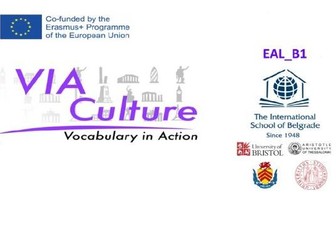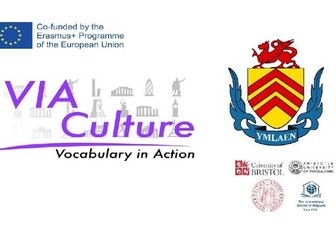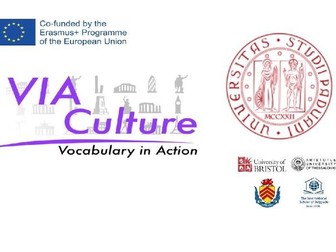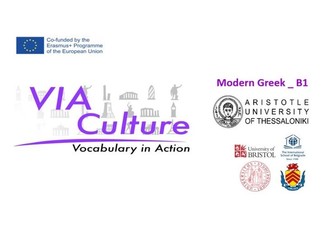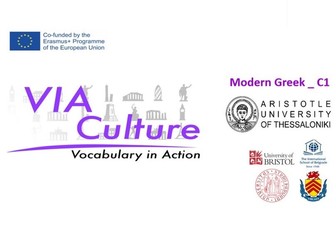English as an Additional Language (EAL) lessons with the VIA Culture method_ Entry Level_B1
<p>English as an Additional Language (EAL) with the VIA Culture method. The utilisation of Cultural Heritage Assets and Drama in Education.</p>
<p>Specifically, here you can find educational resources from a case study undertaken in Belgrade, Serbia. The lessons are created for both KS3 and KS4 students, B1, Entry Level students.</p>
<p>The creation of these resources has been supported by the Erasmus+ KA2 (2018-1-UK01-KA201-047976). The project: VIA Culture is an initiative that mobilises Cultural Heritage assets through artistic mediums for second language acquisition. We utilised methods, tools, and mediums from a variety of disciplines such as Cultural Heritage in Education, Archaeology, Drama in Education, and Digital Learning, aiming to create cross curriculum resources that can be applied for developing skills in literacy, numeracy, and digital competency.</p>
<p>Employing VIA Culture method in your teaching simultaneously creates a welcoming learning environment that prioritises the values of collaboration, acceptance, respect and inclusion among all learners. Our project aimed to record tangible and intangible assets that promote the English Language in the Belgrade case study, so as to support the cultural dialogues in Serbia, to create resources for second language acquisition and to praise and promote the European values on inclusion, acceptance, diversity and equality.</p>
<p>You can find a power point with the four stages of the VIA Culture method which include activities on research tasks, group discussions, writing in role tasks, improvisations, freeze frames, articles & essays writing tasks, interviews, and many more!</p>
<p>The resource is rich in bell tasks & final products. Feel free to add your own #LearningIntentions & #SuccessCritera to match with your students’ needs!</p>
<p>** The current material is designed by Dr Olja Milosevic, English as an Additional Language / English B Teacher at International School of Belgrade and copy- edited by the VIA Culture project coordinator, Dr Konstantina Kalogirou, Lecturer in Teacher Education and Professional Learning at Cardiff Metropolitan University.</p>
